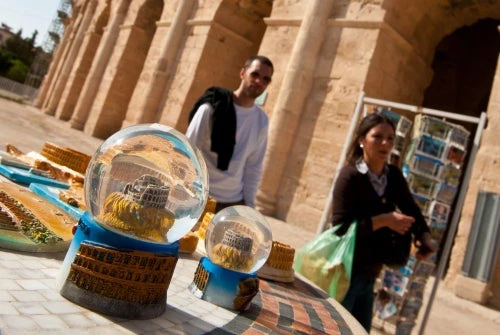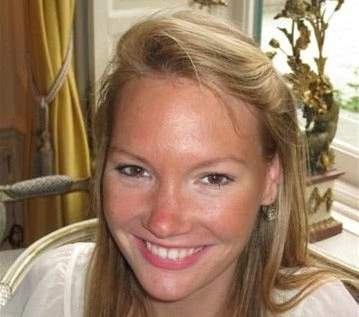I will come to Tunisia this summer from #Italy
 The terrorist attack at the Bardo museum in Tunis last week could not have come at a worst moment. It was just ahead of the tourism season, and, with a new government and president in place, a moment of cautious optimism.
The terrorist attack at the Bardo museum in Tunis last week could not have come at a worst moment. It was just ahead of the tourism season, and, with a new government and president in place, a moment of cautious optimism.
Now, many Tunisians fear the attack will be yet another tough blow for the small Mediterranean country’s tourism sector. A sector still struggling to recover from the tense political climate and fragile security that followed the 2011 revolution.
But shortly after the attack, Tunisians once again showed their resilience. They took to the streets to denounce terrorism. The message was clear: Terrorism has no place in our society.
Tourism was undoubtedly on the minds of many of the demonstrators. The Tunisian economy is heavily dependent on the tourism sector, estimated to make up around 7% of the country’s gross domestic product and employing about 15 percent of the workforce.
“I will be in Tunisia on…”
Facebook post:
A number of social media initiatives were launched in the wake of the attack. These included videos, Instagram accounts and hashtags such as #IamBardo and #IWillComeToTunisia. “If the aim of the terrorists was to undermine the tourism sector with this cowardly attack, they failed,” explained a defiant Zied Chargui at the National Tourism Office. In one Facebook group people from all over the world have posted photos of themselves with a sign saying “I will come to Tunisia this summer.” It has so far garnered close to 60 000 ‘likes.’
Chargui has made effective use of social media in the past. In 2014 when American hip-hop star Pharrell Williams’ hit song “Happy” went viral, Chargui saw an opportunity. He arranged for a Tunisian version to be made in the desert town of Tataouine; famous as the set of the first Star Wars movie. Characters from the original Star Wars danced around the country’s most popular destinations, singing ‘Happy,’ in a well-planned PR-stunt.
Resorting to social media once again, his latest initiative is the Facebook page “ I will be in Tunisia on…,” It encourages visitors to share their vacation photos. Chargui is hoping it “will promote Tunisia among their contacts and friends.”
Djerbahood
Another ‘out of the box’ initiative can be found at one of Tunisia’s most popular tourist spots, Djerba. The small island just off the southern Tunisian coast has become home to an open-air graffiti museum. Today, thanks to 150 graffiti artists from 30 different countries, the small neighbourhood Erriadh - best known as the home of the world’s oldest Synagogue, El Ghriba - is attracting a wide range of curious visitors. They who come to see the large colourful and sometimes thought provoking graffiti that is covering the white walls of the neighbourhood’s labyrinth of small alleys.
“Djerbahood is great,” says the 27-year-old entrepreneur Mohamed Ben Jeddi who is in the process of developing a website to inform Djerba’s visitors of the island’s different sites. “There is a lot on Djerba that people don’t know of,” he says. There are more reasons to visit than the island’s all-inclusive, package hotels. His 23-year-old partner Emna Ben Jeddi adds that to boost tourism “improved communication is essential.”
The newly painted neighbourhood certainly seems to have a positive impact.
“It was beautiful,” says French tourist Christine Le Ny, about Djerbahood, who went there on her first day on the island. “There was a lot of meaning behind the paintings,” she observed. Le Ny had decided to come to Tunisia despite the security concerns expressed by some of her friends back in France.
Still challenges ahead
Nevertheless, the recent Bardo attack is expected to have a negative impact on the upcoming tourism season. Chargui admits that the situation remains fragile, but is trying to remain optimistic. He points to the recent three-day Dunes Electroniques dance festival as a source of hope. It brought together thousands of visitors in Nefta, another desert Star Wars location, without any incidents. “Everything went well,” says Chargui, because “security forces were deployed in large numbers.”
Beyond security and innovation though, structural changes are also necessary, argues Leila Ben-Gacem, founder of a boutique hotel in the medina, the old town of the capital Tunis. Compared to the Ben Ali era, when all-inclusive beach resort vacations were the only thing on offer, and tourists were discouraged to mix with the locals, the new democracy is attracting a more diverse crowd, explains Ben-Gacem.
“It is a much more open type of visitor,” argues the hotel owner, “eager to engage with the community and the Tunisian people.” If this crowd arrives in larger numbers, there will be other challenges. The most critical is the quality of service, or lack of it, argues Ben-Gacem. It will require a whole change of culture. To her, people’s mind-sets are one of the most important ingredients of improved services. “The staff needs to feel like it is the customer that pays them,” she says. “It is their business too to make sure that the client is happy.”
But service aside, perhaps even more important for making the tourists come back is offering less expensive air flights between Europe and Tunisia. “We need a budget airline,” she says. The idea has been on the table for some time, but they keep pushing it back. “Next year, they say,” explains Ben-Gacem, “But competition is good, it will bring down prices and improve the quality.” That would be another critical magnet for tourists.


Join the Conversation